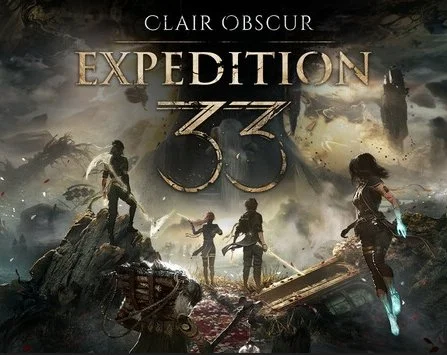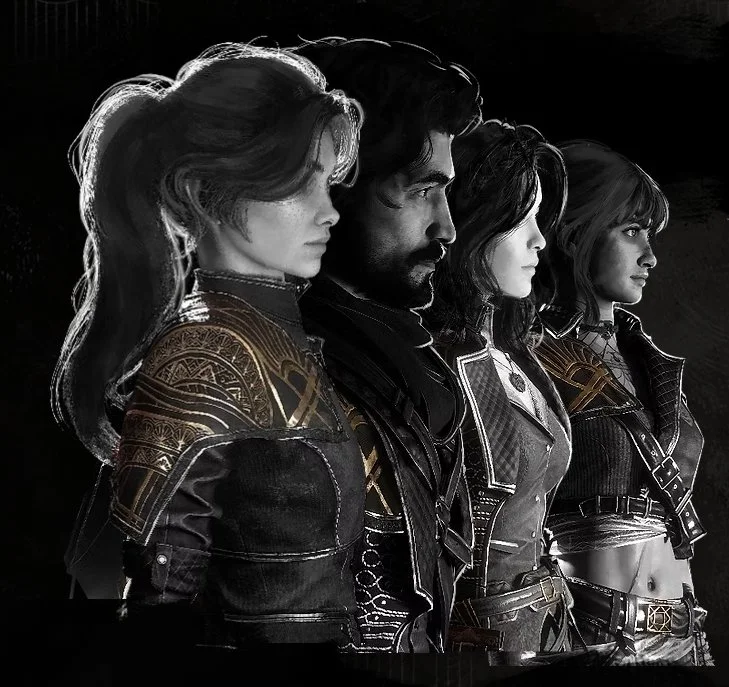The Moral Ambiguity of Video Game Piracy
Video game piracy—illegally obtaining and sharing games without compensating the creators or rights holders—remains a contentious issue within modern digital culture. As video games have grown into a global industry generating billions of dollars annually, the mechanisms for distributing, consuming, and protecting these works have become increasingly complex. Meanwhile, tools enabling piracy (such as torrents, cracked software, and emulator platforms) have become more accessible, raising moral questions about whether and under what conditions piracy may be justifiable. This essay will explore the moral ambiguity of piracy in the video game industry, examining arguments for and against it, the complexities in balancing creator rights with consumer accessibility, and the ways in which digital markets and game preservation play into these debates.
Defining Video Game Piracy
At its simplest, “video game piracy” refers to the unauthorized copying, distribution, or use of video games in a manner that infringes upon intellectual property (IP) rights. The defining legal parameters vary based on jurisdiction and the specific nature of the infringement. In the United Kingdom, for example, copyright law (Copyright, Designs and Patents Act 1988) treats unauthorized sharing of games similarly to other copyrighted works such as music or film (Intellectual Property Office [IPO], n.d.). Globally, too, the enforcement of anti-piracy laws is often fierce, with large publishers lobbying for robust digital rights management (DRM) protections and occasionally taking legal action against those who facilitate piracy.
However, legal definitions do not necessarily resolve the moral debate. Ethically, game piracy intersects with issues of consumer rights, corporate accountability, preservation of cultural artifacts, and access to media across socioeconomic boundaries. These moral complexities shape public discourse around the justifiability (or lack thereof) of pirating games.
Arguments Against Piracy
Economic Harm to Creators
One of the most prominent arguments against video game piracy is that it can cause economic harm to game developers, publishers, and other stakeholders. Studies on piracy’s economic impact often centre on lost potential revenue. This loss might disproportionately affect smaller or independent studios, which often rely on initial sales to recoup development costs and finance subsequent projects.
When a significant number of gamers acquire pirated copies instead of purchasing them, developers’ ability to invest in new intellectual properties or experimental game projects may be impaired (Peitz & Waelbroeck, 2006). Critics of piracy thus argue that it undermines the health and diversity of the gaming ecosystem. If developers cannot sustain their studios due to rampant piracy, it could lead to market homogenization, where only large publishers with deep pockets can endure.
Ethical Obligation to Pay for Entertainment
Another argument against piracy hinges on the belief that consumers have an ethical obligation to compensate creators for their labour. In a commercial world, paying for goods and services is seen as the baseline of fair exchange. Philosophers such as Robert Nozick have linked ownership of intellectual property to a creator’s labour and thus to moral rights. From this perspective, obtaining entertainment without paying the rightful owner is akin to theft, despite the fact that digital products can be replicated without direct material loss to the owners.
Furthermore, the value of a game goes beyond just its code; it encompasses the creativity, artistic vision, and human hours spent in development. Pirates, from this viewpoint, exploit these efforts without contributing any monetary value, making it a form of unjust enrichment.
Undermining Innovation
A broader concern is that large-scale piracy, if rampant, discourages innovation and investment in the industry. The argument posits that investors, publishers, or developers might be reluctant to take creative risks if they worry their products will not generate returns. This risk-averse culture could lead to an oversaturation of “safe-bet” franchises, sequels, or remakes designed to mitigate financial losses. While the direct correlation between piracy and reduced innovation can be debated—factors like competition and technology also shape game development—the concern remains that an industry rife with piracy might become less open to bold experimentation.
Arguments for or in Defense of Piracy
Economic Scale and Perceived ‘Victimlessness’
Some proponents of piracy argue that when large, multi-billion-dollar corporations (e.g., AAA publishers) are involved, the perceived harm is minimal. Critics will point out that an individual game sale lost to piracy is negligible to a company earning billions in annual revenue. Additionally, these companies are often accused of exploiting gamers through microtransactions, season passes, and other monetization strategies (Hamari, 2015). From this standpoint, “stealing” a game from a large corporation is seen as less morally problematic than pirating from a small, independent developer.
This stance is rooted in the idea that moral wrongdoing is tied to the degree of harm inflicted. If the losses to a massive corporation are inconsequential, the moral weight of piracy decreases. Of course, this argument can oversimplify the complexities of large-scale economics—AAA studios employ thousands of individuals, and the lost revenue could translate into job precarity or budget cuts for future titles. Nonetheless, it remains a popular defence among pirates who see big-budget publishers as less deserving of moral consideration than smaller outfits.
Lack of Access and Game Preservation
Access can be a defining moral factor. Some games are region-locked, not distributed in certain countries, or sold at price points that are prohibitive for players with limited resources. Additionally, older games may no longer be in production or supported by modern hardware, leaving piracy or emulation as the only viable methods of play (Newman, 2012). For instance, the closure of classic console digital storefronts (e.g., Nintendo’s Wii Shop Channel) has made it impossible to purchase some legacy titles legally. Enthusiasts and preservationists thus argue that, to keep the medium’s history alive, unofficial emulation or archival sites serve a necessary role.
Moreover, in situations where legitimate markets are absent or deliberately restrictive, piracy sometimes becomes a form of “cultural participation.” Players who otherwise would never be able to access a game can now experience and engage with it—fostering communities, discussions, and creativity (such as modding scenes) that enrich gaming culture as a whole. This defense hinges on the moral principle that art and culture should be broadly accessible, even if current market forces create barriers.
Ethical Objections to Corporate Practices
An emerging viewpoint in the broader culture contends that some publishers engage in unethical behavior, such as exploitative labour practices (“crunch”), anti-consumer policies, or aggressively targeting fan-made projects with lawsuits (Dyer-Witheford & De Peuter, 2009). When these behaviors overshadow the company’s creative output, pirates who refuse to purchase the games consider their actions to be a form of protest or boycott. By pirating, they withhold financial support while still engaging with the product—though this engagement itself can be seen as contradictory.
However, proponents of this form of protest argue that big publishers may only react to consumer dissatisfaction when it affects profits. In this way, widespread piracy could send a clear signal: “We want your games, but not at the cost of supporting exploitative labour conditions or overreaching legal tactics.” Whether this form of protest is coherent or hypocritical remains fiercely debated.
Moral Theories and Their Perspective on Piracy
Deontological Ethics
From a deontological perspective (e.g., Immanuel Kant’s categorical imperative), moral rules hold universally, regardless of outcomes. If one holds a principle such as “taking something without paying is wrong,” then piracy is intrinsically wrong—no matter the financial scale or the user’s intentions. The corporate exploitation argument wouldn’t change the underlying duty to respect intellectual property. Deontologists typically focus on adherence to moral laws, meaning even if the developer is a large corporation with questionable ethics, that does not justify violating copyright.
Consequentialist Ethics
By contrast, a consequentialist approach (e.g., utilitarianism) evaluates piracy based on the overall benefits versus harms. If pirating a game from a major publisher yields a relatively small harm to that publisher but provides significant benefit to an individual who otherwise couldn’t afford or access the game, a utilitarian might argue the act is defensible (Bentham, 1789). On the other hand, if large-scale piracy erodes the industry’s capacity for creativity and results in detrimental outcomes for many developers, consequentialists could oppose it.
This framework also addresses the question of scale—piracy at an individual level might create minimal harm, but if it becomes widespread, the aggregated harm could be substantial. Thus, a consequentialist might acknowledge that while one person pirating a AAA game is morally negligible, the broader social pattern of piracy could still prove harmful overall.
Virtue Ethics
Virtue ethics shifts the question: rather than focusing on rules or outcomes alone, it examines the character traits that an action expresses. In the context of piracy, a virtue ethicist might ask: “Does pirating games cultivate a habit of disrespect for intellectual property, or does it reflect fair-mindedness in the face of restrictive corporate practices?” The answer depends on the context and the moral character one aspires to develop. A virtue ethicist might argue that if one consistently pirates games for personal gain, it fosters dishonesty. Conversely, if one pirated strictly because of an egregious corporate practice and then compensated smaller creators or purchased titles ethically whenever possible, the moral evaluation might be more nuanced (Hursthouse, 1999).
Game Preservation as a Moral Imperative
Another facet of the debate about video game piracy extends beyond immediate access or protest and touches upon cultural heritage. As with music and film, there is growing recognition that video games represent an important part of modern cultural history, yet the medium is uniquely vulnerable to technological obsolescence. Cartridges degrade, servers for online-only titles shut down, and distribution platforms (such as older Steam releases or console stores) eventually close. Emulators and ROM dumps can sometimes be the only means of safeguarding certain titles for future generations (Newman, 2012).
Moral arguments for preservation often rest on the premise that the cultural value of a work transcends its commercial life cycle. If a publisher is no longer selling or supporting a game, some argue that it is neither unethical nor harmful to preserve that game through unofficial channels. The difficulty arises when games remain commercially available but are locked behind restrictive digital rights management or artificially inflated prices—creating tension between supporting ongoing commerce versus preserving cultural artifacts.
Digital Rights Management (DRM) and Anti-Consumer Practices
DRM is a set of technological protections designed to curb unauthorized copying, but it often has unintended consequences for legitimate buyers. Excessive DRM can punish paying customers by requiring persistent internet connections, restricting modding capabilities, or complicating installation across multiple devices (Hamari, 2015). When consumers feel that these measures are draconian, they may view piracy as a form of rebellion, circumventing the publisher’s perceived overreach.
Supporters of DRM argue that without it, piracy would become too accessible, drastically reducing publishers’ ability to profit. Critics counter that draconian DRM rarely stops determined pirates and only frustrates those who wish to purchase legally. In this sense, the moral debate about DRM overlaps with game piracy—some individuals adopt a moral position that “if they are going to treat me like a criminal, I may as well act like one,” which raises the question of whether punitive anti-piracy measures can inadvertently drive piracy rates upwards (Cunningham & Alexander, 2016).
Socioeconomic Factors and Global Disparities
A final layer to the moral debate involves socioeconomic disparities: video games can be expensive, particularly for individuals in lower-income regions. While piracy in wealthier countries may simply be a matter of convenience or miserliness, in parts of the world where the cost of a new triple-A game might constitute a significant portion of a monthly wage, the moral equation changes (Peitz & Waelbroeck, 2006).
Pro-piracy arguments grounded in global equality suggest that cultural products should be more affordable or distributed at variable regional pricing to ensure equitable access. Publishers do sometimes engage in region-specific pricing, but not always. This tension can lead to piracy being viewed as an unofficial “solution” to market failure—where legitimate avenues are priced out of reach, people turn to unauthorized copies. The moral stance that entertainment should be available across diverse economic contexts leans toward a more forgiving view of piracy in these situations.
Navigating a Balanced Moral Position
In weighing these arguments, the moral ambiguity of video game piracy becomes apparent. The creative labour invested in producing games, the legitimate desire for fair compensation, and the need to preserve gaming history coexist with valid critiques of corporate exploitation, exclusionary pricing, and harsh digital rights management. A nuanced perspective might acknowledge the harm piracy can cause while recognizing contexts in which piracy feels morally defensible—such as games that are no longer available, or publishers whose unethical practices discourage direct financial support.
Possible balanced approaches include:
Legal Purchase Where Possible: Purchasing games from smaller, ethical developers while withholding support from certain large publishers if one objects to their business practices.
Supporting Game Preservation Initiatives: Encouraging or funding archives and museums that lawfully preserve older games and emulate them for educational or research purposes.
Consumer Activism: Employing legitimate protest methods such as boycotts or social media campaigns, so that objections to a publisher’s practices are clearly communicated, rather than silent, individual acts of piracy.
Ultimately, personal ethics, financial means, and one’s stance on the value of intellectual property all shape how an individual navigates these moral waters. While piracy remains illegal in most jurisdictions, its moral evaluation can differ substantially, depending on context, intent, and impact.
Simply Put
Video game piracy sits squarely at the intersection of law, technology, economics, and ethics. The complexity arises from a swirl of factors: protecting creative labour and artistic expression, pushing back against corporations perceived as exploitative, balancing consumer access with fair compensation, and preserving a burgeoning cultural heritage in an age where digital distribution can vanish overnight.
For some, piracy is straightforwardly unethical—a clear violation of intellectual property rights that robs creators of deserved income. For others, it is a necessary recourse against restrictive regional pricing, unsustainable industry practices, or the slow erasure of historical games. Still others hold a more ambivalent position, suggesting that while piracy is never ideal, it can be morally justifiable under certain circumstances—particularly when no legitimate alternative exists or when the publisher’s actions contravene essential consumer or worker rights.
While the debate is unlikely to find a single, definitive resolution, one overarching principle endures: the moral weight of piracy is best judged in light of context. Who suffers? Who benefits? And what broader social or cultural values are being upheld or violated in the process? As game development continues to evolve, so too will the moral discussion around piracy, ensuring that this topic remains a perpetual flashpoint in digital culture.










